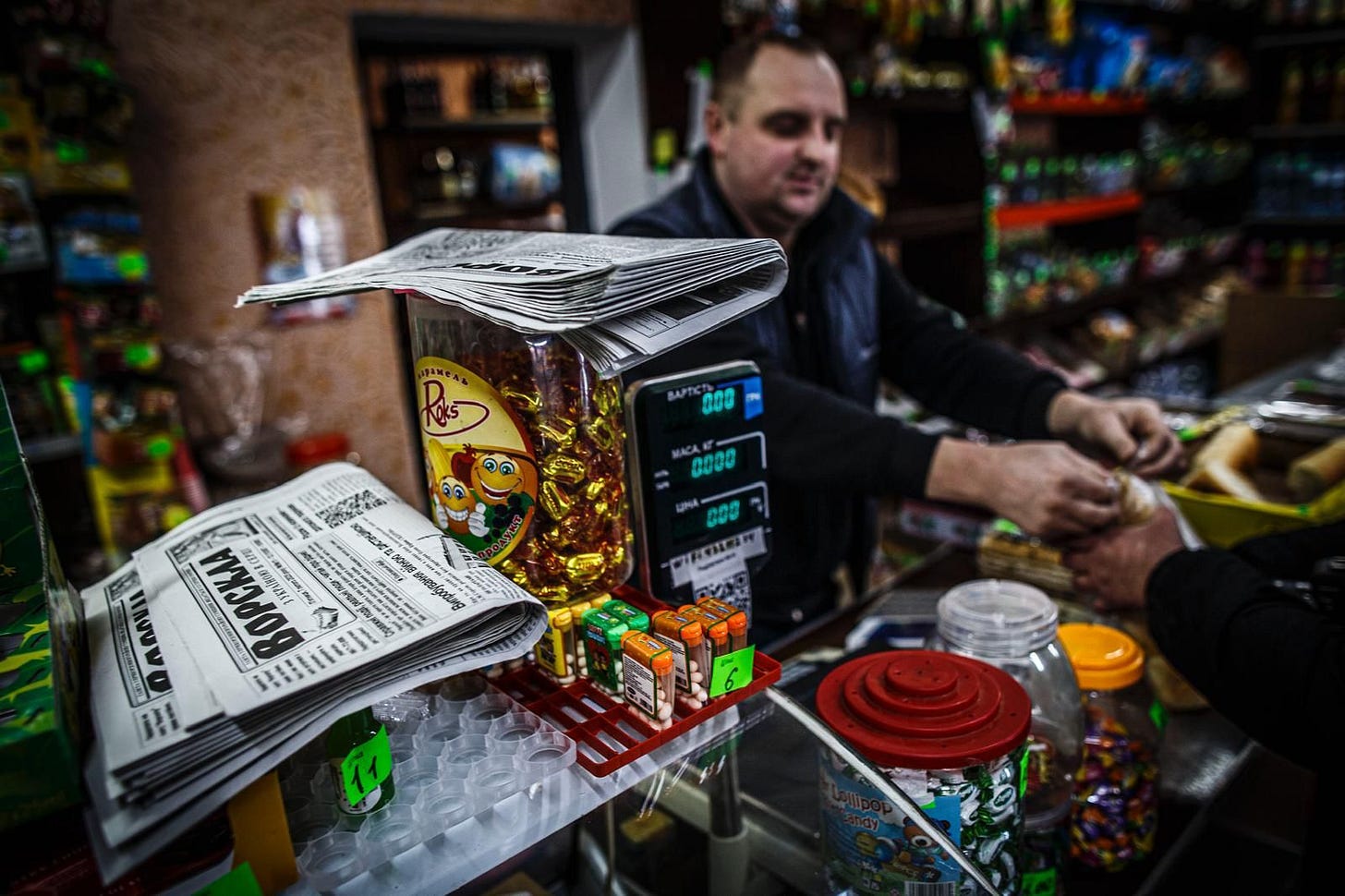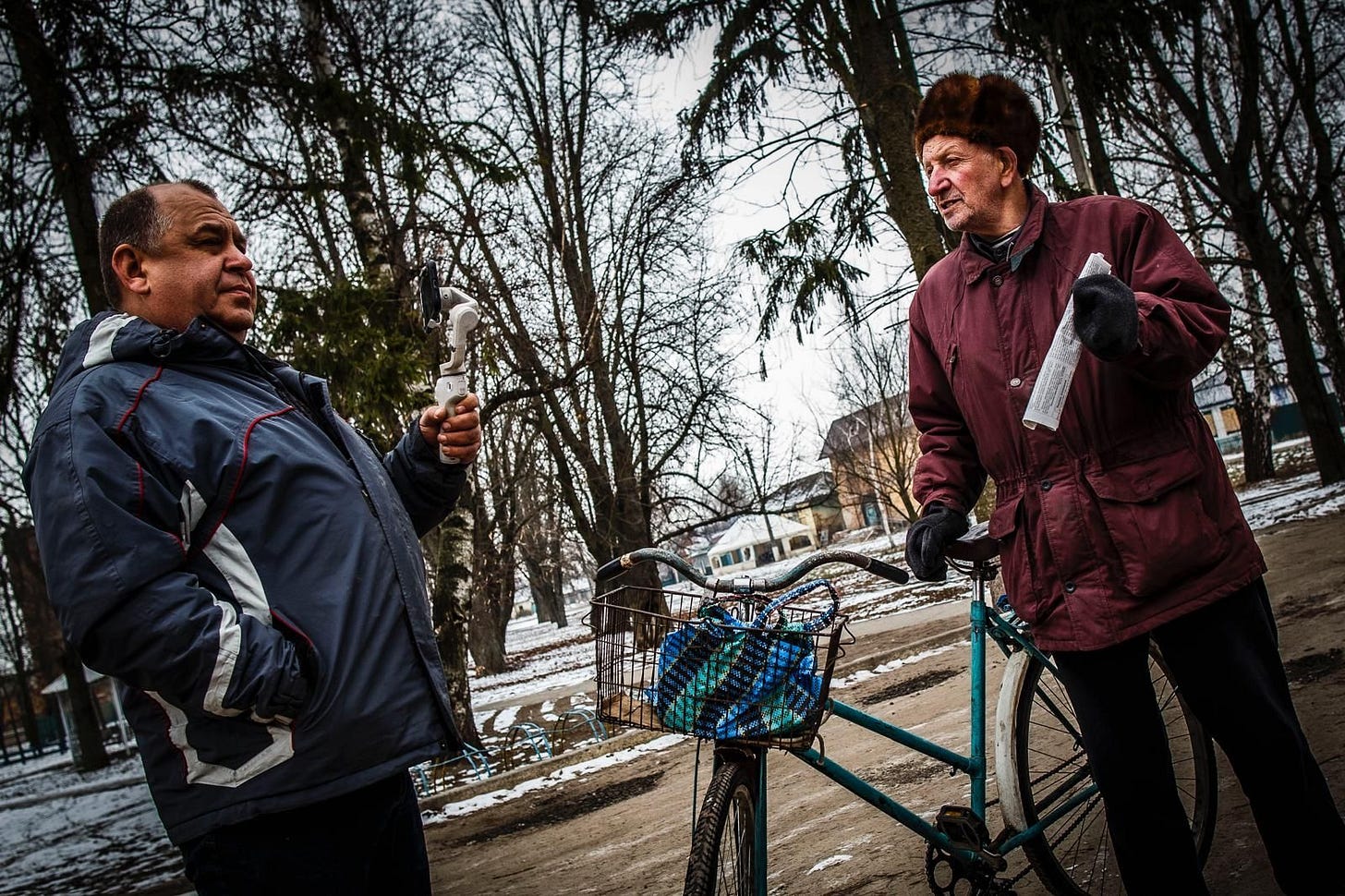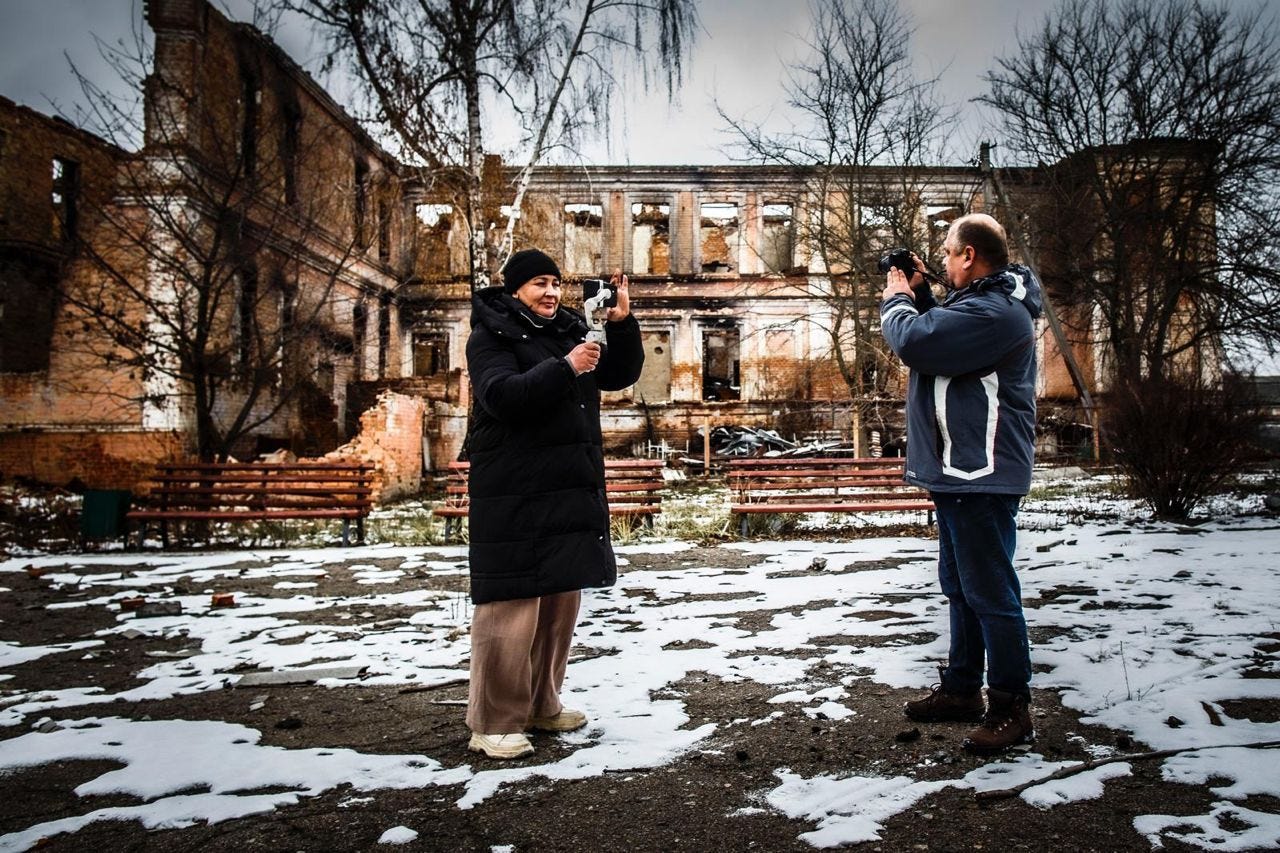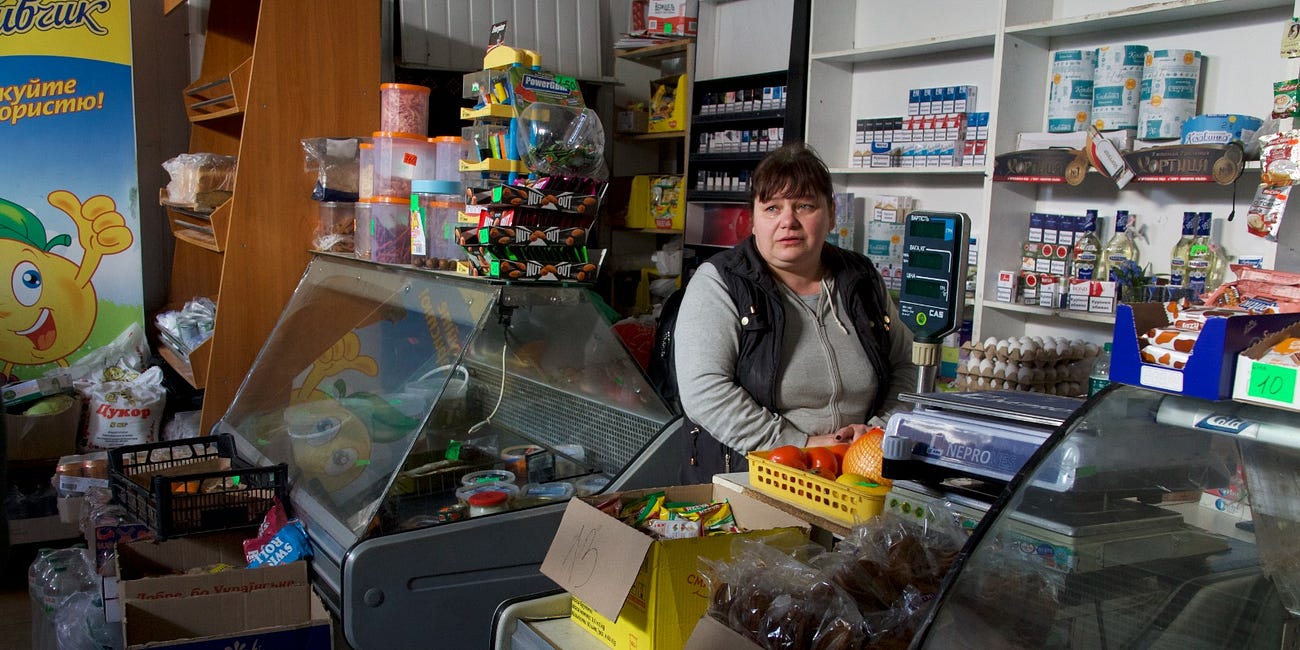
On the Russian-Ukrainian border, in the shadow of bombed-out transmission towers, a small paper called Vorskla is the only source of news. Each week its editor-in-chief risks his life to deliver the paper to the locals.
Last month Boldizsar Gyori, a young Hungarian reporter who was once one of my students and is now a freelance working in Kharkiv, accompanied him on his remarkable newspaper round.
A version of this story first appeared on Radio Free Europe Hungarian Service. Click here to read the story in Hungarian. Copyright (c)2024 RFE/RL, Inc. Used with the permission of Radio Free Europe/Radio Liberty.
It is surely one of the world’s most hazardous newspaper rounds.
Every Friday, a battered white car sets off from Okhtyrka in the Sumy region and drives almost all the way to the Russian border. At the wheel is Oleksii Pasyukha, editor-in-chief of the weekly newspaper Vorskla.
The state post office and parcel delivery companies no longer come this close to the Russian border. It is simply too dangerous. So Oleksii delivers the paper himself.
Founded under Stalin as the Red Banner, the newspaper once provided local news to the residents of the north-eastern Ukrainian city of Sumy and nearby Poltava.
After the fall of the Soviet Union, it was renamed Vorskla, after the river that runs through the area. It currently has 900 subscribers, and it sells an additional 600 copies each week.
The day after the latest issue was printed in Vinnytsia in western Ukraine, Oleksii filled the boot of his car with stacks of papers and set off to meet his readers and bring them the latest news.
His destination was Velyka Pysarivka, a village once home to 4,000 people hard up against the Russian border.
There is no longer any electricity or internet in the village - the transmission towers have been blown up by the Russians. The only news available is Russian radio from the other side of the border, which broadcasts music and propaganda.

Three years ago, at the start of the full-scale invasion, Russian tanks passed through the village, but they were unable to advance further, so after systematically destroying the infrastructure, they retreated back to Russia, leaving the locals in what amounted to an information blackout.
For a month Vorskla stopped printing. The editorial office in Velyka Pysarivka was dangerously close to the front. Locals were starving, two of the five-man editorial staff fled, and one journalist joined the Ukrainian army.
Then the first issue came out since the invasion had begun.
“Some people found out that Kyiv had not been occupied by the Russians only then. They cried when they read it,” said Oleksii.
The fare that the paper offers is unashamedly local and aims to appeal to a variety of tastes.
The front page of this year’s February 14 issue featured a portrait of a soldier born in a neighboring village who had recovered from a serious wound, thanks in part to community donations.
It also included details of an award given to a local historian, news of a pension increase, a recipe for cheese fries - “for those who don’t have much time for breakfast or dinner, ready in a few minutes” – and a crossword.
As I accompanied him on his run Oleksii stopped at a roadside crucifix near Velyka Pysarivka and crossed himself three times.
His wife, Natalia, who also works at the paper, was with him. Then he rolled down the window and listened carefully. The village is often targeted by artillery and drones.
Arriving at a kiosk next to a blown-up petrol station, Oleksii got out and left five newspapers behind.
A little further on, he stopped next to an old man on a bicycle, called him by name, and handed him the latest issue.
As we drive on Oleksii pointed to bombed-out buildings. “This was the post office,” he said. “This was the school.”
Two walls and a door are all that remain of the local history museum but the locals have painted the door, and set up a mini-exhibition among the ruins.

At an intersection, a man stepped out from among the trees and shouted at Oleksii to stop. He pointed to the road: the head of an anti-tank missile the size of an ostrich egg was lying on the asphalt, dropped there by a Russian drone.
Oleksii took a detour to the last working pharmacy. It is now at its third location since the war began, after being bombed out of the first two.
He handed over newspapers that subscribers had requested and stopped to chat with a middle-aged couple in front of the store.
“Vorskla is like a statue, a monument. We’ve been reading it since we were children,” Natalya, a nurse, said. “We buy every issue so that one day we can show our children and grandchildren what the war was like.”
As he drove Oleksii took photos and videos of local buildings. He publishes the footage on Vorskla’s website. This is one of the newspaper’s most popular services. It is how those who have fled find out whether their houses are still standing.
Finally, he turned towards the bombed-out editorial office to check if everything was in order. The post office next door had been hit, the middle of the three-story building – like the internal organs of a huge animal – spread out on the asphalt.
The blast also blew out the windows of Vorskla’s office in the neighboring building. Yellowing papers and glass shards littered the floor of the former editorial office, and the icy wind made the curtains dance.
Until 2014, Vorskla published articles in a mix of Ukrainian and Russian, and it was up to the author which language they published in. This gradually changed after the occupation of Crimea and the eastern Ukrainian territories, and now they write exclusively in Ukrainian.
“There will be no more Russian. We cut that off,” Oleksii said. “We used to go to Russia for petrol, and they used to come to the market for food.”
“Some went to school here, some got married there. When the invasion broke out, we still got phone calls from them. They warned us to be careful.”
But then, Oleksii said, the Russians started calling their former friends and neighbours ‘Ukronazis’ and ‘Banderites’. (Stepan Bandera was a World War 2 nationalist Ukraine leader who Russia regards as a fascist.)
“We grew up together, we are not Banderites,” Oleksii said. “We still have Russian visitors on the paper’s website. But now they say we are making everything up”.
If anyone opts for a paid subscription to my substack after reading this story the proceeds will go to Boldizsar, who is trying to make ends meet as a young freelance journalist based in Kharkiv.
If you opt for a founding member subscription everything above $50 will go to supporting Vorskla.
*
Kim and I were also in Velyka Pysarivka a year ago. You can read our feature story below.
Life under the Russian Guns, Part 2
The residents of Velyka Pysarivka had almost finished renovating their municipal library.




Wonderful story, incredibly moving! Journalism at it’s absolute best